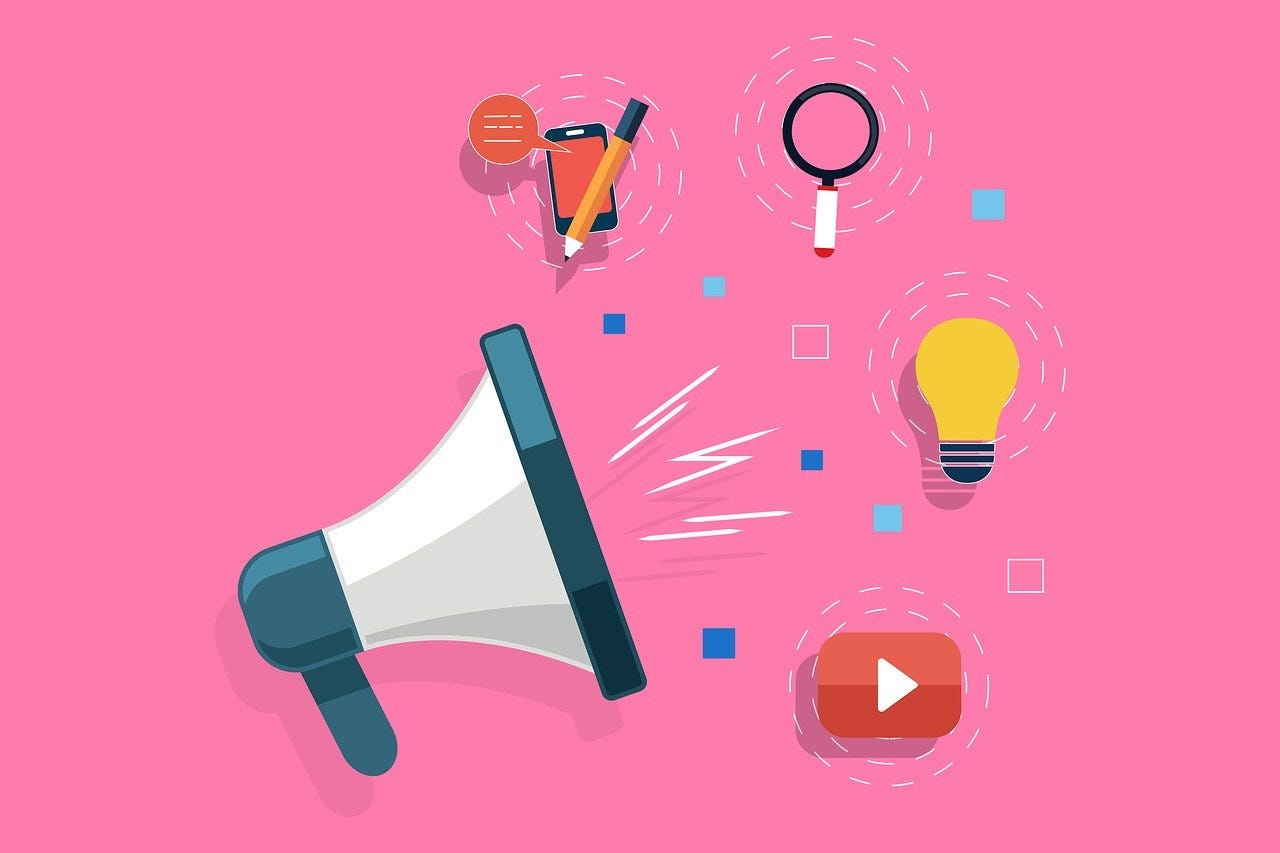This is not a blog. It was never intended to be one, and I don’t want it to become one.
With that in mind, I’ve included a music video where I’d typically record a personal message. There’s enough about me in the other sections. Besides, it’s a great music video—“The Divine Chord” by The Avalanches. The track is a regular on my playlist.
I want this to be your newsletter. Is there anything else you’d like me to include? Should I link to more articles and resources? Would you be interested in contributing?
Use the comments section at the bottom for your suggestions. Or, you’re always welcome to send me an email at goingmentalnewsletter@gmail.com. Let’s go mental.
In the news
I spent a few days this week conducting interviews with digital media professors in the European Union and Australia. I’m intrigued by incoming legislation that will regulate the likes of Facebook and Google in those regions, particularly with regards to how the tech giants share news stories and amplify false information through algorithms. Big tech’s comeuppance is long overdue; there are moral and financial bills to be paid.
Having said that, I should also point out that I have always been, and remain, a believer in the inherent good of social media, and an article from the Brookings Institute that recently came across my desk only entrenches that confidence.
What if, the article asks, social media could help identify cases of depression, psychosis, and other mental illnesses in their early phases, when treatment is most effective?
Obviously, there are the requisite privacy concerns. But we already relinquish our privacy when we sign up for social media accounts. If we’re willing to do it for advertising purposes, why not for health objectives? Nevertheless, the idea still needs some ironing out.
What the article’s writer envisions is a doctor having access to a patient-specific set of data gleaned from social media. Key words and phrases would be collected, and patterns of digital behaviour analyzed. The goal would be to head off incidents of self harm, public harm, and suicide through predictive data and allow physicians to more accurately diagnose and treat the patient.
We further sought to investigate how far in advance this kind of analysis might be able to predict future depression, since identifying patients at an earlier stage in their mental illness creates better treatment opportunities. Our analysis suggests that social media-based prediction of future depression status may be possible as early as 3 months before the first documentation of depression in the medical record.
It goes without saying that the digital information would provide only a partial picture and would thus make up only a portion of the patient screening process. More broadly, however, our data sets could help demographers and public health personnel to better serve particular segments of the population and more accurately place services in our communities. Prospective advertisers already have access to this data. Public health services would make much better use of it.
I hope you read the article, and I’d be interested in learning what you think of it. Use the comments section at the bottom of the newsletter to share your opinions. And don’t worry—I won’t sell your remarks to the highest bidder. Probably.
Excerpt—So Old A Pain: Depression in Fragments
How did I get here? Does it matter? I don’t owe you an explanation. How do any of us get anywhere? We are born, we do this and that, then we die. At one point or another, it doesn’t matter which, we ask ourselves, “How did I get here?” At one point or another, it doesn’t matter which, the question is put to us, “How did you get here?” It’s the most human of questions, because it asks everything of us. And yet, it doesn’t matter. I had little to do with it, you had little to do with it, we weren’t consulted, though every now and then, at one point or another, it doesn’t matter which, we tried to interject. But no one was listening, not then, not now, even if we planned our interjections, tried to anticipate the best moment to interrupt. It might have seemed a safe moment, or not, it doesn’t really matter.
Video—The Avalanches
Mindful
I don’t love therapy. Other people rave about it, but I’ve never enjoyed it. Mostly I’ve always wanted to just get it over with, like something I have to do that will somehow benefit my mental health. It’s not the greatest mindset, and it likely doesn’t help my therapist (or me) accomplish much of anything. It seems that when it comes around, I simply don’t feel like talking.
Therapy for depression, in itself, is a tough operation. After all, one of the major characteristics of depression is a desire “to not be seen.” And the point of therapy is “to be seen.” So there’s an inbuilt conflict right off the hop. It’s one I’m very conscious of. As a defense mechanism, I tend to gloss over problems and show my therapist only a glimpse of my condition. The gratification is that my therapist will tell me I’m doing well—and who doesn’t like to hear that? Even if it’s not true.
The thing is, I want my therapist to have a more accurate picture of how I’m feeling. I want our sessions to help me more than they currently are. And I remind myself that therapists aren’t there, on the opposite sofa or at the other end of a Zoom call, to chat with normal, healthy people about the weather, the local sports team, and the arrival of COVID vaccines. It should not be a meeting of friends.
So, to change it up, I’ve intentionally thrown a wrench into my next therapy session. I’ve asked for a totally different date and time in the hope that I’ll be thrown off, that I’ll be unbalanced enough to be more raw, to show more of myself. It’s me who stands to benefit. Therapy is one of those rare things we can sincerely approach with the thought, “it’s all about me.”
I have no idea how it will go, but I’ll let you know. In the meantime, have a great weekend!






